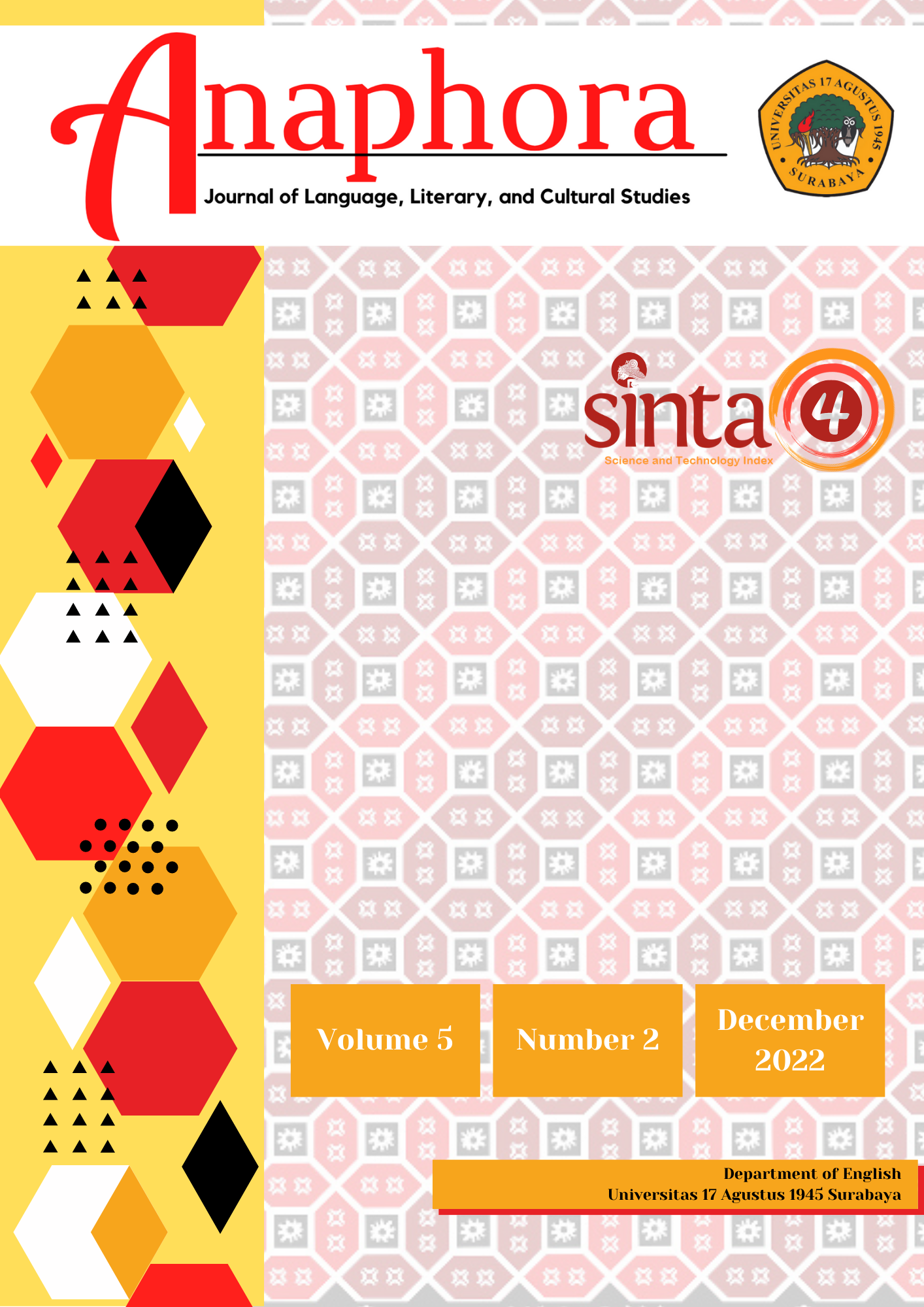Teachers’ Written Feedback on Digital Answer Scripts during COVID-19: Views, Preferences, and Expectations of the EFL Students
DOI:
https://doi.org/10.30996/anaphora.v5i2.6729Keywords:
Online Assessment, Feedback, Digital ScriptsAbstract
This study aimed at exploring Bangladeshi students’ views, preferences and suggestions regarding teacher’s feedback on the digital examination scripts during the COVID-19 pandemic. It followed the quantitative method of research to check the views, preferences and expectations of the students on feedback on the digital answer scripts provided by the teachers. Purposive sampling was used in the present study. The sample consisted of 115 undergraduate students at the Department of English, Green University of Bangladesh, Bangladesh. The obtained data was quantified and analyzed using Microsoft Excel. The findings revealed that students acknowledged the importance of feedback in the digital answer scripts and prefer both negative and positive feedback from the teacher. The findings also show that the students expect corrective feedback based on the grammar and language errors in the answer scripts. However, the results revealed that a portion of the students focuses only on the score they receive and not on the feedback. Based on the findings, the study implies that the teachers should explore the students’ views regarding specific types of feedback and develop a method to provide comments that attract the students to go through all the comments and reflect for future improvements.
Downloads
References
Biswas, M. (2020). Written Feedback on Midterm Scripts: Students’ Expectations, Problems and Preferences. BELTA Journal, 4(1), 20–31. https://doi.org/10.36832/beltaj.2020.0401.02
Dowden, T., Pittaway, S., Yost, H., & McCarthy, R. (2013). Students’ perceptions of written feedback in teacher education: ideally feedback is a continuing two-way communication that encourages progress. Assessment & Evaluation in Higher Education, 38(3), 349–362. https://doi.org/10.1080/02602938.2011.632676
Irwin, B. (2018). Written Corrective Feedback: Student Preferences and Teacher Feedback Practices. IAFOR Journal of Language Learning, 3(2). https://doi.org/10.22492/ijll.3.2.02
Islam, M. Z. (2021). Shift of English Literature Learning from Classroom to Online: Preferences and Attitude of Bangladeshi Undergraduate Students. Elsya : Journal of English Language Studies, 3(1), 1-7. https://doi.org/10.31849/elsya.v3i1.5869
Khan, R., Jahan, A., Sultana, S., NaushaadKabir, M. M., Haider, M. Z., & Roshid, M. M. (2021). Accessing online instruction amidst COVID-19 in Bangladesh: Barriers and coping strategies. Language Teaching Research Quarterly, 33-48. https://doi.org/10.32038/ltrq.2021.22.03
Lee, H. W., & Cha, Y. M. (2021). The Effects of Digital Written Feedback on Paper-based Tests for College Students. The Asia-Pacific Education Researcher. https://doi.org/10.1007/s40299-021-00592-8
Mahfoodh, O. H. A. (2017). “I feel disappointed”: EFL university students’ emotional responses towards teacher written feedback. Assessing Writing, 31, 53–72. https://doi.org/10.1016/j.asw.2016.07.001
Miah, A. S., Kabir, M. R., & Sultana, S. (2020). E-Learning in Bangladesh: A Study of Teachers’ Behavioral Orientation and Affective Alignment in the Post-New normal. Contemporary Research in Education and English Language Teaching, 2(1), 16-35. https://doi.org/10.33094/26410230.2020.21.16.35
Sarcona, A., Dirhan, D., & Davidson, P. (2020). An overview of audio and written feedback from students’ and instructors’ perspective. Educational Media International, 57(1), 47–60. https://doi.org/10.1080/09523987.2020.1744853
Saunders, M., Lewis, p., & Thornhill, A. (2007) Research methods for business students (4th ed.). Financial Time Prentice Hall.
Shorna, S. A, Suchona I. J. (2020). Bangladeshi Undergraduates’ Attitude towards Teachers’ Feedback on Midterm Scripts. Crossings: A Journal of English Studies. 11 (1), 261-271.
Singh, M. K. M. (2016). Graduate Students’ Needs and Preferences for Written Feedback on Academic Writing. English Language Teaching, 9(12), 79. https://doi.org/10.5539/elt.v9n12p79
Tavakoli, M., & Zarrinabadi, N. (2018). Differential effects of explicit and implicit corrective feedback on EFL learners’ willingness to communicate. Innovation in Language learning and teaching, 12(3), 247-259.
Tom, A. A., Morni, A., Metom, L., & Joe, S. (2013). Students’ Perception and Preferences of Written Feedback in Academic Writing. Mediterranean Journal of Social Sciences, 4(11). https://doi.org/10.5901/mjss.2013.v4n11p72
Tri Adhi Kencana, A. (2020). Students’ preferences and teachers’ beliefs towards written corrective feedback. ELT Forum: Journal of English Language Teaching, 9(1), 85–95. https://doi.org/10.15294/elt.v9i1.37187
Downloads
Published
How to Cite
Issue
Section
License
Authors whose manuscript is published will approve the following provisions:
-
The right to publication of all journal material published on the jurnal anaphora website is held by the editorial board with the author's knowledge (moral rights remain the property of the author).
-
The formal legal provisions for access to digital articles of this electronic journal are subject to the terms of the Creative Commons Attribution-ShareAlike (CC BY-SA) license, which means Jurnal Persona reserves the right to store, modify the format, administer in database, maintain and publish articles without requesting permission from the Author as long as it keeps the Author's name as the owner of Copyright.
-
Printed and electronic published manuscripts are open access for educational, research and library purposes. In addition to these objectives, the editorial board shall not be liable for violations of copyright law.















